My Self-Imposed Humiliation Ritual: Is It Transgressive to be the First Trans Film Critic to Review Actors?
a metatextual interrogation of my inability to reconcile my sudden success since transitioning
In this movie Betsey Brown recreates the Possession subway scene because she’s AGP.
For the last year this movie has been my white whale, a movie thats synopsis titillated me with the potential spoils of its edgy try-hard cringe-worthy premise, and now I am so pleased to finally be able to share my thoughts on Betsey Brown’s feature debut Actors.
I genuinely have enjoyed Betsey Brown as a performer in everything I’ve seen her in thus far, her first landing on my radar thanks to her brother’s film Assholes. Since I was 15 I’ve attended the Calgary Underground Film Festival (at first using a fake ID to get in so I could check out the new Gregg Araki flick or whatever) and I planned to check out Assholes at CUFF but unfortunately the screening overlapped with the premiere of our new film so I was unable to attend. However, I did hear that the screening was quite the experience and that the Q&A was… unique. So, of course I was curious and although I still haven’t watched Assholes I was certainly invigorated by the idea of what these Brown siblings were doing in the neo-transgressive cinema space.
A converging entryway to this sort of Internet pop cinema came through the work of Eugene Kotlyarenko, a filmmaker who fell on my radar because he was the only other dude making the sort of work I was interested in making myself around 2012. I have a soft spot for any filmmaker who thinks it’s a good idea to shill on 4chan (for obvious reasons) and although I have little formal interest in most screen-life aesthetic exercises, 0s&1s was a noble early attempt even though it’s limited by its nostalgic fetishization of an earlier internet aesthetic (it works well and good as a storytelling device, but I was honestly more fascinated at that time with attempts at capturing that firecracker of net-life in the early 2010s — which he achieved brilliantly in SkyDiver, a film I was not aware of until years later). Kotlyarenko’s later film Wobble Palace is a far more exciting aesthetic exercise that better integrates a rotting internet phonology for its story of two culturally anemic millennials (a capsule review of which is how I ended up screening for SXSW and thus found myself in the film festival world). Kotlyarenko’s co-star in the latter, Dasha Nekrasova, directs Betsey Brown in The Scary of Sixty-First, another of these neo-transgressive works which use the internet as its backdrop.
Now before continuing, I think there is a hindsight in 2022 which can be applied to this last decade of cinema and potentially define a loose semantics for this canon of neo-transgressive work. First, I ask a question that has weighed on me since I started making films twelve year ago: What the fuck even is transgressive anymore? I got my start shooting underground cinema full of rape, violence, and transphobic (among other insensitive) depictions of characters getting horrifically murdered; hell, even I played a transphobic caricature in one of these sorts of gore-porn flicks long before I started popping estrogen pills. But none of that felt transgressive. Why would it? In the late oughts/early 2010s we’d already moved far past the limits of what you could show on film, and these depictions merely enforced a social/cultural hegemony by showing the disposability of the marginalized in their propensity for “subversive” violence. And I have to be honest, cinema of transgressions folks in the 80s/early 90s were doing far more intense shit than we were doing in our director’s backyard “rape shack.” (I should note here that in the early 2010s, working under a since deceased name, my closest filmic associations online were with a lot of filmmakers whose work would be at the ideologically redundant try-hard faux-transgressive exercise known as the NPCC Film Fest. Thankfully my transsexuality affords me the luxury of knowing that my self-loathing does not entitle me to that kind of attention, so I did not go down the path which would have lead me there as well. Close call.)
So what the fuck even is transgressive anymore?
In Matt Johnson’s 2013 Slamdance hit The Dirties there’s a scene in which Johnson (playing a fictionalized version of himself) approaches his mother (played by his real mother) and asks whether she thinks he’s crazy. What results is a truly uncomfortable, raw, and authentic moment in which Matt’s mother responds earnestly to the question, revealing an additional layer to the filmmaking in which we realize the distinction between film and reality have completely blurred and fragmented. In a film about a teenager warped by his relationship to media to committing real-life violence, this moment of unobstructed truth stood out to me as a formal choice which was truly transgressive. Newly transgressive, finally! Kotlyarenko’s SkyDiver employed a similar technique of formally eliminating the distance between character and actor three years earlier (and cinematic outliers such as My Suicide and Zero Day and Kids and I Don’t Hate Las Vegas Anymore paved the way for that structural framework before that even). But what then separates this performance art as narrative performance from anything to cover similar territory in decades prior, and to that I say that the true transgression comes from this revelation and disintegration of identity and its relationship to public/private image. Specifically, these filmmaking decisions are transgressive because these filmmakers are opening up themselves to the scrutiny of an identity politics obsessed internet culture, in the same way that Monte Cazazza filmed a phallic wound being picked at and scraped open until it bled 40 years ago. Works like The Scary of Sixty-First, Nirvanna The Band The Show, Buzzard, Mumblecore, Assholes, TFW NO GF, Hellaware, Dark Prism, Frownland, The Comedy, Dashcam, So Pretty, Cuddly Toys, Brain Death, Kuso, North by Current, Murder Death Koreatown, Ask Any Buddy, Spree, The People’s Joker, Honeycomb, and All Jacked Up and Full of Worms (a recent favourite of mine which, of course, has Betsey in a supporting role) all use this framework of transgression by playing with the aesthetic separation between performer-reality-audience in ways that feel truly taboo and sometimes dangerous. Filming a gross-out public scene that could have people there calling you out, or even worse, people online accusing the filmmaker of behaviour to get them “cancelled” is the new cinema of transgressions — we’re not transgressing the functions of the body, we’re transgressing the existence of oneself, both online and irl.
Which makes Actors, a film which itself barely exists outside of the realm of internet film discourse that accuses it of being offensive trash, sort of the epitome of the movement. No major festivals wanted it and the go-to explanation became that the reason for such is that it was too offensive, which then became its own promotion tool when someone like Sean Baker declared support for this bold new vision that Betsey had put to screen. Betsey cracked the code like no neo-transgressions filmmaker had done before her; she figured out an idea that with content alone would get her movie pre-cancelled. And it worked. She made a directorial debut where in its wake, when I mention her name at film festivals those around me already have wonderfully negative connotations of her based on conflating this movie and her as an individual. This movie makes her toxic, wherein to work with her means you are working with the chick who made fucking Actors. And that is transgressive as fuck, good for her!
So what was that subject matter? She made her movie about trans shit, obviously.
Does that trigger you? If it does, I’m sorry.
=Peter Vack, Actors
I couldn’t find any writing by trans women on this movie. All of my trans film critic friends think this movie is a waste of their fucking time to talk about, and it probably is. But guess what, I just stuck 100mg of progesterone up my asshole and I’m ready to write way more than I should about Betsey Brown’s “trans minstrel show.” As much as Mike Crumplar harps on the “minstrel” criticism of Peter’s character in his review, I’ve gotta say step the fuck back. I watched this with a group of trans friends who were just as excited to see this film as I’ve been over the last year, and we all came away from it absolutely invigorated. We all agreed that it was one of the most exciting films we’ve seen in ages, and one of our favourites we’d seen this year. Now I’m not saying this film isn’t offensive to trans women (even Betsey cowardly writes a trans woman character into the film to declare at its conclusion that trans women are not a monolith but goddamn it is she ever offended at Peter’s appropriation of transness, dammit!), but I’ll be honest in saying that neither myself or my friends walked away from this offended. I’m far more offended by the discourse around its supposed offensiveness towards “the trans community,” which seems to have stunted its release (unless of course, the discourse is part of the bit and Factory 25 is just waiting for the perfect time to release it? Diabolically clever, if accurate).
If there’s one other thing I find incredibly offensive about Actors, it’s director Betsey Brown refusing to acknowledge the movie’s trans themes as its foundation. Instead, she calls it a movie about “sibling rivalry” but it’s not really that, at least not in the way that everyone is writing about it through that lens. As a matter of fact I don’t think anyone who has seen it so far has adequately discussed the thematic merits of this movie. So here we are, myself, transsexual woman director-film theorist Louise Weard about to commit to the transgressive bit of defending Betsey Brown’s Actors, a movie which all of my trans colleagues on here have awarded a 1/2 star rating. Sorry film friends, but what did you expect from the dirtbag trans girl that made the 4chan computer fucking movie?
Before discussing the film’s thematic relationship to transness, I want to add my perspective to those writing the movie off by saying it’s bad anyways. I think that’s reductive when the movie is, on an aesthetic level, taking bold swings with its editing and cinematography. The vision in this department primarily rests at the hands of editor Benjamin Moses Smith, Kotlyarenko’s editor since 2012 and a pioneer of the sort of film editing that lands your indie movie in NEXT at Sundance. Ben and Eugene have been trying to crack the code of showing the co-existence of IRL and internet landscapes in the same frame for years, and that style is taken to its glorious conclusion in Betsey’s debut. Here it’s a faster barrage of digital information and memes than was even accomplished in the most bold moments of Spree, and it works as both an exciting, entertaining, and dare I say, Godardian distancing technique that constantly keeps the audience at arms length as we watch cameras filming actors filming themselves and each other, all cross-cut and dissolved and layered over each other to hell in a Brechtian cacophony of image. The semiology of Brown’s film is truly insane, a bold vision upheld in Smith’s editing that emphasizes that transgressive disconnect between mind-body-actor-character-persona-truth. If Cronenberg’s Crimes of the Future is a traditionalist form in exploring our changing relationship with the mind and flesh in the chaos of modernity, then Betsey Brown’s Actors is the aesthetically challenging and structurally brash demonstration of it. This editing is pushing the medium forward in ways we haven’t seen since mumblecore stripped all aesthetic boundaries away fifteen years ago, and in a way this neo-cinema of transgressions is the perfect antithesis to that style which developed in tandem, as its polar opposite or dark side. Looking back on the past fifteen years of neo-transgression, we see a casual building of these pieces over time as filmmakers tested boundaries in contrast to their mumblecore contemporaries — being an edgelord as formal exercise, mixed with an awareness of terminally online syndrome and all of these filmmakers being people that have something genuinely wrong with them to put themselves through this again and again to varying degrees of “success.”
Betsey herself tried on this neo-transgressions style for her short film Shegetsey Betsey in which she plays a version of herself and her ex-boyfriend does the same. It’s a similar setup to Kotlyarenko’s A Wonderful Cloud from the same year, which speaks to a sort of tandem thinking among these filmmakers as they established this too-personal-to-the-point-of-discomfort filmmaking style. Of course, this is just the format for how to approach this — the ingredient that’s missing is the true danger of the subject matter, something truly radioactive. I’ve established previously that I find the personally and ideologically toxic flirtations of The Dirties and SkyDiver to be some of the most interesting of this movement, whereas movies like Spree and The Scary of Sixty-First rest a little too easy on assuming that their low-hanging fruit is itself shocking enough to forgo any additional exacerbation and thus amputating their transgressive intent in favour of wider appeal — Actors is fucking disgusting in its boldness and blows away everything to come before it in this movement.
This film is so raw in how it blurs those aforementioned lines that you really do come away from the work with a pretty eclectic idea of what makes Betsey and Peter tick. In the end credits they mention, hey remember this is just a movie, this isn’t us. However, the execution of the movie has me thinking it’s a lot more complex and nuanced than that. These aren’t just characters, and these aren’t simply actors, even as the movie undercuts dramatic moments with Betsey jumping to one of the cameras to go “did we get that” after many of the authentic-seeming moments. We get some interesting ideas at play here that form that glossy surface of the “sibling rivalry” theme that Betsey loves to talk about, which are primarily played out in long takes that have the Browns interacting with each other or their parents, stripping away the facade of acting as we see an uncanny facsimile of their family dynamics. Stuff like this, including Peter reading a negative review of Assholes to his parents, are the least interesting aspect of the movie and yet are the stuff that I see come up in reviews the most. If it was five years ago, sure cool, but let’s be real, the only reason we’re all here is to watch Peter take the pink pill.
Transness is executed in Actors in a far more sophisticated way than anyone gives Betsey credit for, and she’s so clearly terrified of what she’s created that she won’t even admit that this is what her movie is about. The movie opens with a scene of Peter asking to try on Betsey’s lipstick, which then escalates to him crossdressing in her clothes as Peter tries to get the perfect selfie lighting in which he looks fish enough. He wants to be as hot as a girl as he is as a guy, and after taking in that negative review of Assholes he decides that the next challenge for his artistic career is to see if he can still be successful if he’s a trans woman rather than a privileged “white cis male." He frequently calls his new identity an experiment amid statements of “still cis tho,” which makes sense after the response of his family to coming out is disbelief with no respect to using his new name or pronouns. Petra’s transness exists only in her highly controlled online social hyperreality and the cultural space in which she auditions and acts. By the time she’s injecting estradiol (“still cis tho”) and ranting about dysphoria-adjacent self-loathing and the hyper-performative nature of her own existence, my friends and I were all in disbelief that Betsey seemed to have accidentally hit a vein of authenticity in Petra’s characterization. Sure, it’s messy as hell and full of crosstalk and it’s problematic, but so is the internal monologue running on loop through my head all the time. Another early scene features Betsey, Peter, and a friend talking about adjusting to the use of they/them pronouns and the film clearly positions Peter as having a particular sensitivity towards the topic, which further confuses this defence of the film that “PETER IS CIS.” Not in the text of your film, Betsey (however let’s hang that on the idea that anything this movie engages with in terms of transness comes from the unintentional genius afforded to a non-trans filmmaker being so egregiously out of their depth that it somehow wraps all the way around).
So here’s the thing that makes Actors most interesting to me as a trans woman, and that’s in the idea of what makes it offensive. Crumps thinks that Peter is a minstrel show, but like, I know that doll (dear early transition trans girls, you’re allowed to be embarrassing as you figure out womanhood, signed former hyper-visible and cringe early transition tall girl). I don’t think that Peter is playing a caricature of a trans woman, and I don’t think that we are supposed to laugh merely at the sight of Peter in a dress. If that was Betsey’s intent, to humiliate her brother by force-femming him, then good for you because that’s hilarious in a weird sibling dynamics way, but if that’s the case then your movie is resting on a pretty basic joke that’s been pummelled into the ground past the point it deserves a laugh. Now, based on reading reviews on here and elsewhere, written by the ilk who went and saw this in Tribeca on the merits of owning the libs or whatever, it seems that Peter in trans cosplay is funny to those smooth brained chuds (the kind of folk who think that writing “dilate” as their review is the peak of edgy comedy — wow, you sure got me!). The attitudes of comedy surrounding trans bodies is interesting to me, and I’ll use the example of my recent event at Fantastic Fest as a quick case study. During my night of 200 castrations, I had two supercuts centred on trans subject matter: a collection of sex change scenes and a collection of trans girls cutting their dicks off. Immediately after the event, one of my trans woman friends (who I believe was the only other trans girl in the sold-out show other than myself) mentioned to me her discomfort at the entire audience laughing at the punchline to South Park’s vaginoplasty scene, in which the doctor responds to the question “Do I look like a woman?” with “Close enough!” On the filmed presentation you can see me awkwardly laughing along with the scene, the punchline of which is funny as a joke set-up, but solely rests on the idea that trans women’s bodies are disgusting — that’s the joke, I’m the fucking joke (and I’m laughing along, trying to be part of the joke, above the joke, knowing the whole time that the inclusion of these clips was setting me up to be the lead performer in my own trans minstrel show, and dammit I was here to perform!). But like, as a doll I’m used to it, and when the two of us talked about that after the show it was more an observation than a moment to be genuinely offended. It was one of those instances you get as a trans women where you get to see how people authentically view you, without the shame of respectability politics keeping people who “know better” in line. Actors operates in holding a mirror to that provocative and honest urge within a non-trans person to let their guard down, and I assume that the reception of trans women who saw it at the Roxy was so overwhelmingly negative because they were sitting through their own humiliation ritual as everyone around them laughed at the mere existence of the trans character on-screen. How fucking disgusting, how shameful. Returning to my Fantastic Fest show, the next day I was walking into a screening and someone cornered me to complain about how offensive my event was because of my inclusion of the trans content, specifically the montage which followed the South Park clip, the ones of all the dolls cutting their dicks off. With the exception of the movie I starred in, none of the other clips had trans actresses in the roles, and with the exception of the film I directed, all of them were made by non-trans filmmakers. My comment to this person, who said “we’ve moved past the point of showing things like that” was “The most recent of those clips was from last year! As long as filmmakers have known what trans girls are they’ve shown us cutting our dicks off and I won’t stop confronting you with it until non-trans filmmakers stop including it.” This person was not trans. They said they agreed to disagree. To me, this encounter was hilarious, and a vindication of what I set out to do in the first place.
So if the joke in Actors merely rested on “Petra’s trans body is disgusting” then sure, fuck this movie. However, I really think that the film, and specifically Peter’s performance, do take Petra seriously and approach her with a degree of empathy. I say this because as a group of trans people watching it, the comedy of the film came in how everyone was reacting to Petra and how it certainly approaches some truth to a trans femme experience. I already mentioned the way that nobody in her family takes Petra’s identity seriously, but the movie gets right more subtle moments that I was genuinely laughing at. Petra complaining that the TV show she’s on makes her look ghoulish with how clockable her make-up is. The scene in the waiting room where the other girl auditioning gets way too over the top in complimenting Petra’s femininity. The news immediately using her deadname with the “formerly known as Peter” line. Petra threatening to kill herself in a completely irrational freak out that results in her forcing Betsey to try to get pregnant again for her (the gallows humour of our trans watch party had us cracking 41% jokes — Petra gets it). The discussions of trying to discuss gender seriously are especially hilarious in how they’re pulled out of a Youtube Trans 101 — Gender is Performance (I especially loved this as I wrote a critical scene about this exact sort of thinking into my next film, so it was immensely vindicating to see that language used sincerely here), and in those moments Peter seems to be doing a very intentional and sincere impression, which is hilarious because now I know what the non-trans audience comes away with from such things. The movie is smart about gender in a very stupid way, and this is where Betsey’s character’s storyline comes into play.
The whole joke of Actors is that Peter is a better Betsey than Betsey is. Peter is only trans as a means of humiliating his sister by proving that he’s better at being her than she is, and he succeeds. He gets the parts she auditions for, makes the aesthetic changes she wishes her body had (Petra wears the blonde hair Betsey mentions wanting at the beginning of the film), and the twist at the end of the film leads to Betsey asking/admitting “make me famous” as the film’s final punchline (Petra ends up getting FFS to look exactly like her sister). The entire movie revolves around this idea of performing femininity. When Petra finds success where Betsey couldn’t, well, she turns to the one thing that her trans sibling can’t do — she gets pregnant. But this backfires when she has no maternal instinct and fails at motherhood, unable to even “act” the role when she puts a camera in front of herself. When her partner abandons her with their child, the film uses an intertextual reference to Possession as Betsey wears the same blue dress as Isabelle Adjani and reenacts frames of the subway scene in her bathtub — the most obvious reference to failed motherhood/femininity in all of cult cinema. This culminates in a scene in which Betsey takes abortion pills and then opens photo-booth to attempt to perform another moment of perceived feminine vulnerability as social capital, but just can’t get her performance right. In contrast, Peter has no trouble “acting” as Petra; one scene has the siblings having a genuine moment where they realize they feel more connection than they’ve ever felt before now that they’re sisters, and Betsey pauses to ask if Petra is still recording (she isn’t) and the moment is lost for Betsey, but not Petra. Both sisters do the same yoga routine in their own apartments, Petra is effortless and exact in her positions, while Betsey struggles and collapses. Betsey is constantly reminded about her disgusting body hair as her boyfriend plucks the hairs around her nipples with tweezers and her friend criticizes that her moustache is too prominent; meanwhile, the only mention of Petra’s body hair comes when she says she’ll get electrolysis, otherwise her body is shown as smooth and immaculately groomed. By the film’s end, we see that Petra wins at who is the better Betsey, and in that moment Betsey finally allows Petra to take over and embraces her. Petra effortlessly becomes a successful woman, whereas Betsey eventually takes her signature baby-talking AR performance style directly into a literal crib, regressing in her defeat. Another humorous exploration of this theme involves a scene in which Petra scolds Betsey on the fact that Petra does her make-up better, dresses better, etc. — she’s just better at performing femininity than her non-trans sister, dammit! But what does that mean about gender, because we all can agree that performing femininity in a way that begets social and subcultural capital isn’t what makes someone a woman, right?
There’s a scene in which Petra ends up in a threesome after some dude in a bar berates her on whether or not she has a pussy or a cock. This scene comes directly after that discussion of gender as performance I mentioned earlier, and I suppose that the film taps into something thematically dense in how it also uses transphobic violence in its narrative. Harkening back to my initial commentary on the new cinema of transgressions perfection being achieved by Actors, I must say that the standout sequence is the shot-in-public montage of Petra taking estradiol injections on the streets of New York while standing in front of an “I’m more famous than Trump” meme printout. It’s brazenly disgusting in its confrontational nature, taking this trans appropriation public and then staging a tame hate crime (some masked dudes pour a bucket of water on her head), complete with a brilliant punchline as Petra does multiple takes trying to record the perfect reaction to being fake hate-crimed. According to the history of cinema, to act as a trans woman you must also play the part of social victim (and then if you were pathetic enough, suffered enough abuse, and died well enough you win your Academy Award). The movie pays this moment off at its conclusion when Petra is randomly attacked while walking down the street with her family, having her face beat in by some random transphobe. It’s a bit of a gross oversimplification and delusional idea of what transphobic violence looks like, how it happens, who it happens to, etc. However, the next scene has the sole trans actress show up to be the trans community’s voice of refutation and complain that Petra was only attacked because of her hyper-visible carnivalesque spectacle of transness. First, this accidentally taps into something about trans visibility and its relationship to our liberation in a way that is far too complex to discuss here, and since it’s drastically unintentional there is not a reason to go further into it. Second, this idea of highly confrontational perceived transness leading to violence reminded me of Alli Coates’ transcendent performance art film American Reflexxx (which I saw thanks to it and my DIY orchie movie premiering at the same festival many years ago). In Coates’ film, a non-trans woman walks down a street wearing a reflective mask over her face and within 14 minutes she’s being berated with transphobic epithets and eventually physical violence from a growing mob. The coda on Actors’ trans content to me strikes an authenticity in its similarity to Coates’ performance art piece, in that it justifies the film’s relationship to gender as performance discourse while also tapping into something genuine about the perception of trans bodies. The 14 minute walk down the street becomes a 70 minute exercise in controversy-baiting narcissism, both hitting us unintentionally with a better understanding of society, culture, and cinema’s relationship with the trans body. But fuck it, instead I say cancel it and everyone involved. Isn’t it that which makes this movie worth talking about, anyway?
The oil casing of my progesterone is now leaking out of my asshole because I have stayed up way too late sitting and writing this essay on Betsey’s transphobic movie.
And yes, it is certainly transphobic, albeit interestingly so in that it is no more transphobic than any other movie about trans people made by non-trans filmmakers. Returning to my primary criticism with the film, which is in filmmaker-promoter Betsey shying away from the transness of her movie, I can only assume that the got to this point because she is scared about what it would mean for her career to admit that she did something transphobic by making this movie. I will not further pathologize, nor will I claim that Betsey would be in a better position if she owned up to her movie being transphobic, that she has internalized transmisogny and has naively made a performance art exercise in expressing these repressed feelings and revealing them in her audience. Regardless of what Betsey does, the movie she made is powerful enough to fulfil the ideal of the neo-cinema of transgressions, and it will only become greater as it's exposed to a wider audience. If it even still can be, that is.
I guess that I’m still chasing that high I set out to hit twelve years ago in my quest to figure out what the fuck was still transgressive anymore. I want to get in some trouble! Well, if being the first tranny to write a defence of Betsey’s unreleasably transphobic movie isn’t the most transgressive thing I could do in this moment then I’ve fallen way off the mark somewhere. But what did you expect from the girl who brought 90 minutes of dick mutilation to Fantastic Fest and somehow got away with it? I’ll still always be the transsexual girl who made the film that thanks /tv/ in the end credits. On that subject, I’ll be at the Music Box in Chicago next week to show my cursed 4chan computer fucking movie (it’s cursed because it stars a cast that has all since transitioned playing the wrong genders, which in practice is hilarious). And if you so fancy, the night before you can see my friends’ movie All Jacked Up and Full of Worms, starring Betsey, of course. Neo-cinema of transgressions, motherfuckers. Get on the ride or suck my tranny cock.

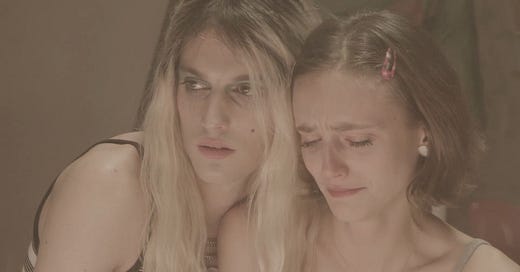



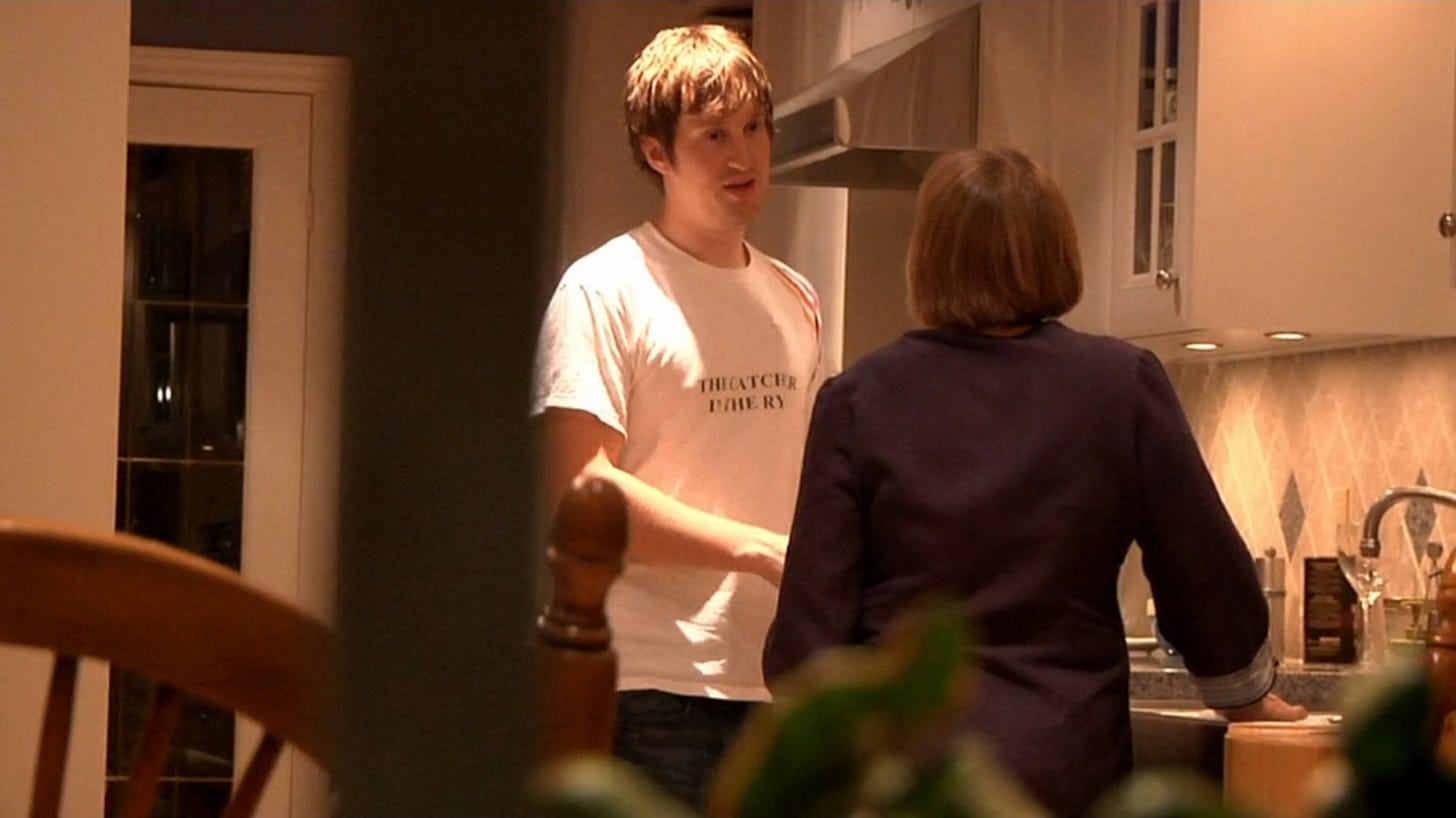
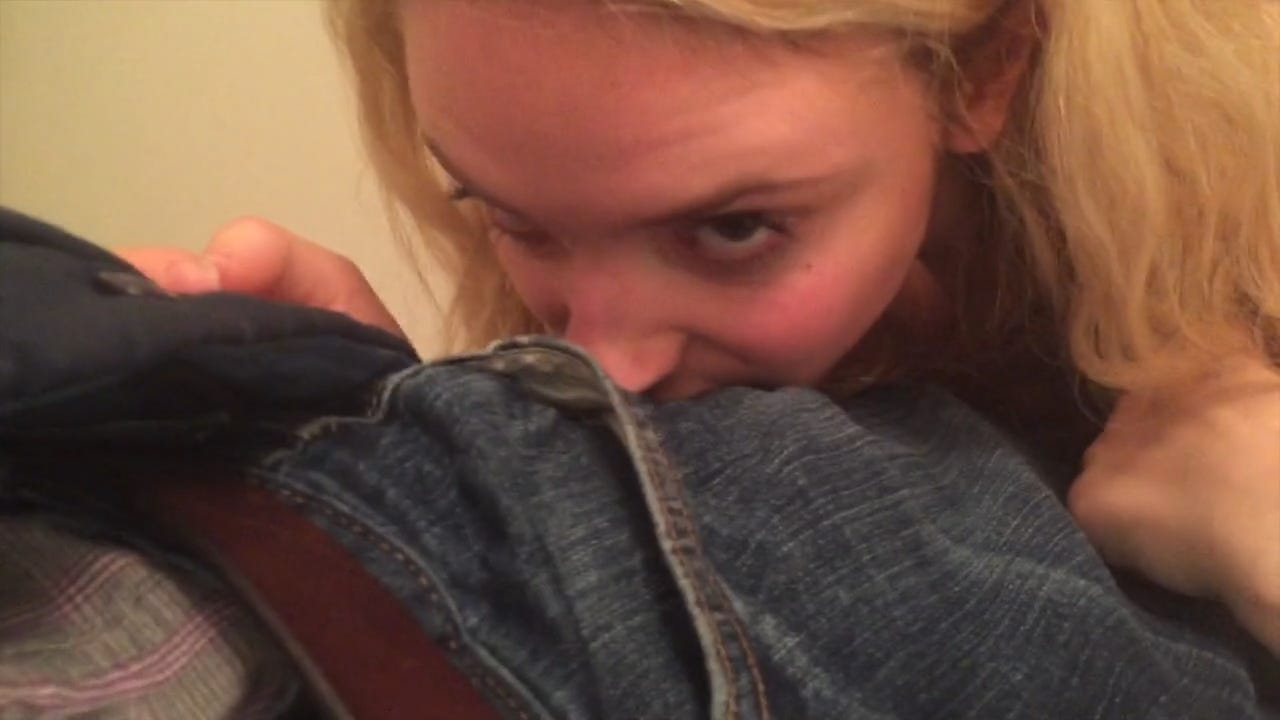
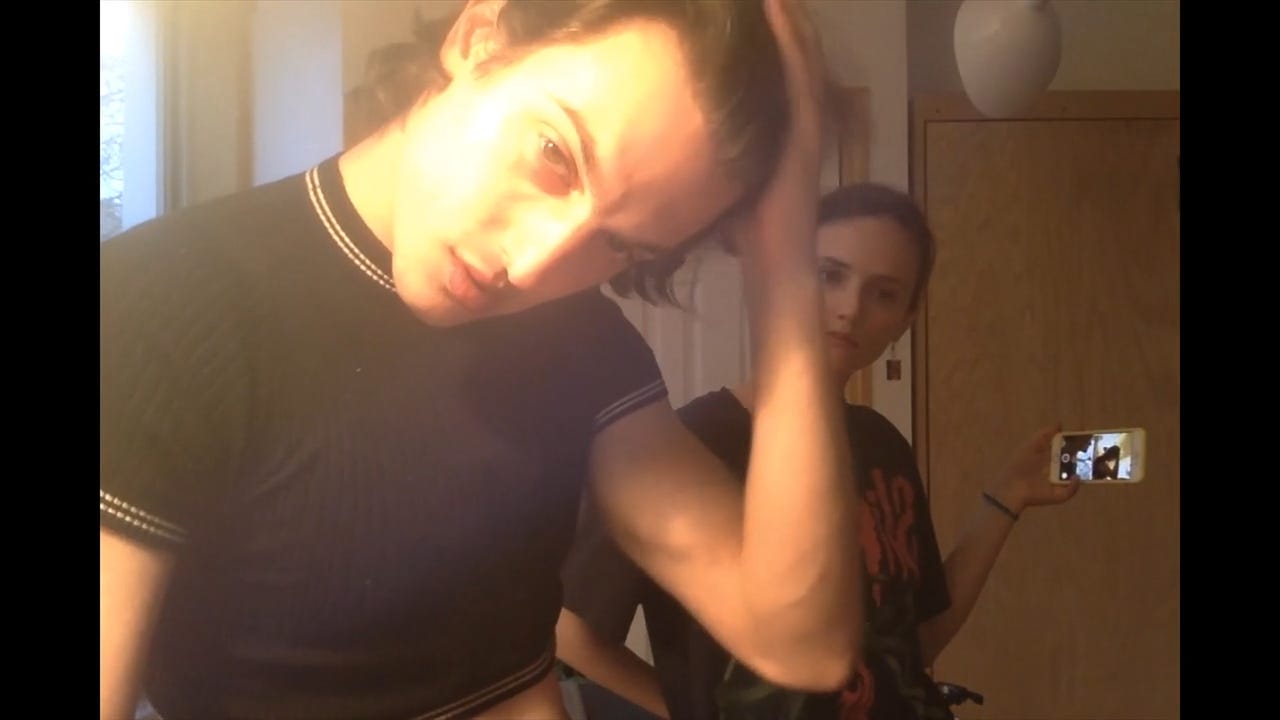
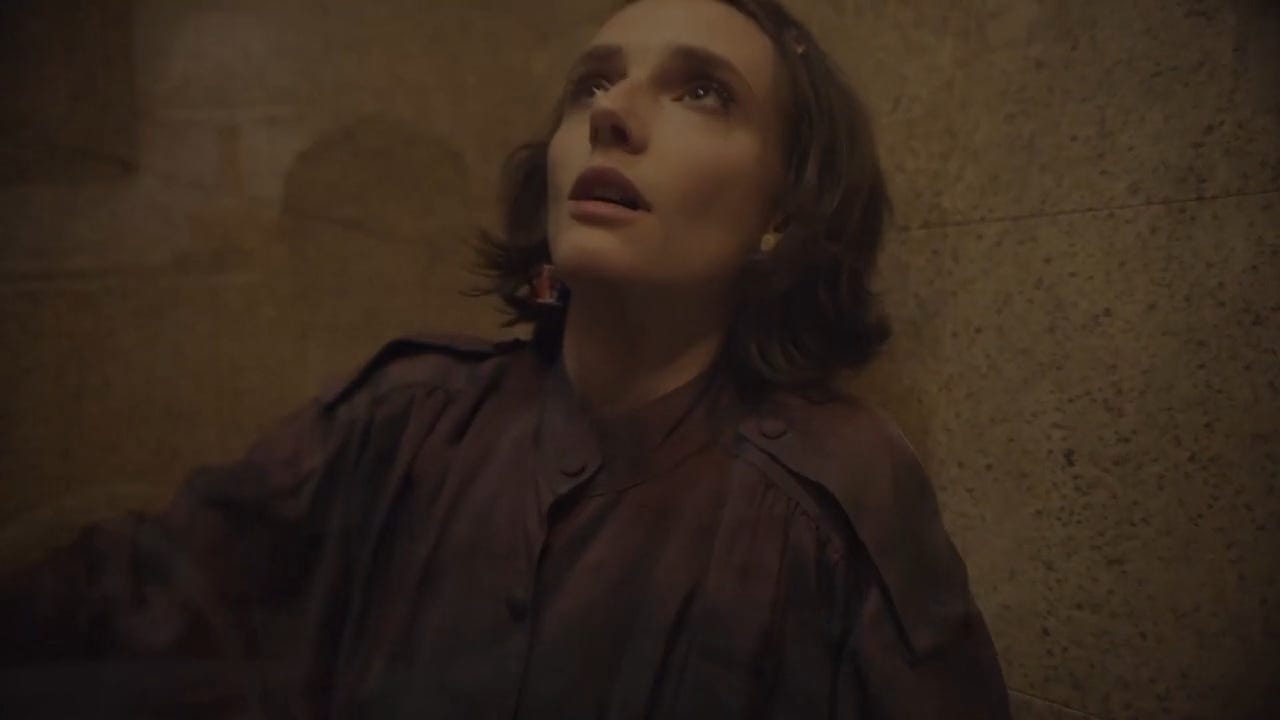
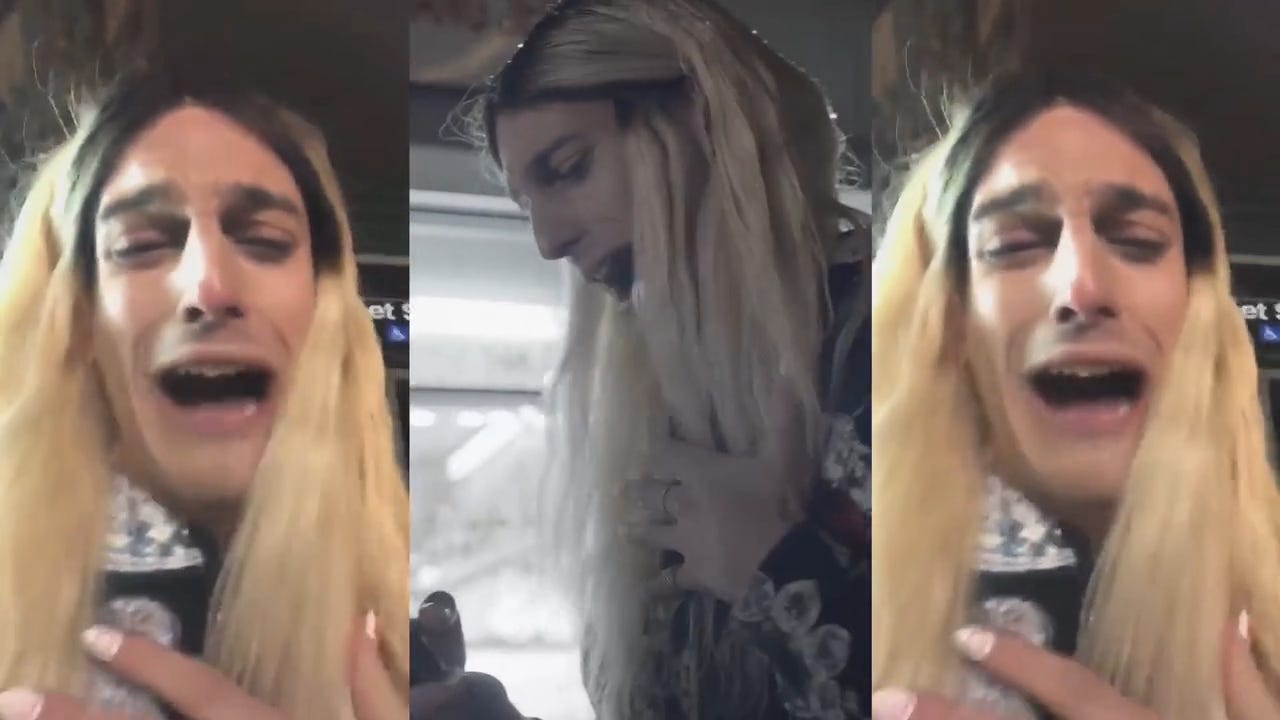
Let us return to Andre Bazin and let go of any and all identitarianisms, forever.